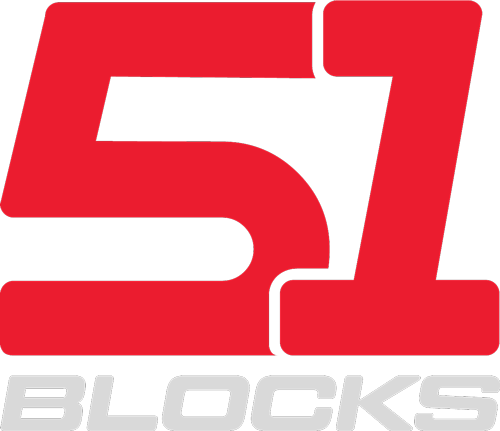7 Best Strategies for Local SEO Keyword Research
Optimizing your website for local SEO is mandatory for online businesses. A well-rounded SEO strategy will build your website’s credibility in a search engine’s eyes, but local SEO keyword research will help you attract business where it matters. If you’re running a location-specific business, that’s where you earn your money.
Below, we explain how to devise a watertight local search optimization strategy. Discover how you can better optimize your content.
1. Put Business Growth Before Brand Identity
Branding is essential for attracting the type of clients you want, but you can get too caught up in your brand’s message and miss out on valuable customers.
Let’s say you run a health food store. Your ideal client is interested in healthy eating as a lifestyle, and you want to set your brick-and-mortar premises apart from local supermarkets with attractive displays and niche products.
That’s all well and good, but if you don’t include less glamorous terms like “supermarket” or “convenience store” anywhere in your online presence, people aren’t going to find you. Let customers discover you from every avenue and narrow down your specialty offering later.
Likewise, a general contractor might offer roofing, siding, and home maintenance services. People tend to search for whatever needs they have rather than looking for general services. “General contractor” might be in your business’s name, but if you’re not optimizing for keywords like “roofer” and “roofing services” in your area, people are going to miss you. Know what you offer and describe it in every way you can think of.
2. Optimize for Your Area(s)
Locations are the bread and butter of good local SEO keyword research. But which locations? It could include one of the following:
- Neighborhood
- Town
- City
- State
You should include all these locations as keywords, not just the ones you’re based in – every area you serve should be described somewhere. Location pages are a great way to achieve this, as they direct customers who search for you to a bespoke page for their area.
If you have a wide service area, an exhaustive list of neighborhoods might seem too much to create individual pages for. Use common sense – pick a general area and include neighborhoods sporadically throughout your service page. You can also use geographical terms to help; for instance, you could create an “X service in West Cincinnati” page and optimize it to include neighborhoods like Westwood, North Fairmount, etc.
3. Find Out What Your Customers Want
Think about what your customers are looking for. Make a list of your most popular products or services and research other services that customers want that you could offer. If your business provides kitchen renovations and you discover that granite countertops are all the rage in your area, you can bet you’ll get seen more by optimizing your content to show that you sell these.
But what if that’s not your primary service? Local SEO keyword research is about attracting traffic to your website. Optimization should focus on finding what customers want and getting them to your site as long as you’re not claiming to offer a service that you can’t provide. Then they can discover everything that you offer, and you can guide them to your best products.
4. Don’t Get Too Hung Up on Search Queries
So how do you create local SEO keywords? This is a matter of considerable debate among professionals. Searchers often don’t include passing words like “in” – raw keyword research, therefore, suggests that you should include keywords like “siding contractors Portland.” Sometimes that’s fine, and sometimes it doesn’t make sense.
You may think you’ll do better by writing sentences like “Our siding contractors Portland are here to help.” In truth, Google is smart enough to know that searchers are just saving time by skipping words. It’ll typically rank you just as well if you include the grammatically correct version, and it means your customers won’t trip up over clunky sentences on your website and click away.
There are exceptions – sometimes exact phrasing matters. This is especially true in longer phrases and long-tail keywords. But don’t worry, we cover this below.
5. Use FAQs and Long-Tail Keywords
Checking customers’ questions about your industry is essential for local SEO keyword research. The drop-down “people also ask” section on Google is a free-to-use goldmine for this. Include these questions on your site like an FAQ page, verbatim where possible, and provide helpful answers. You could become Google’s top drop-down result.
Long-tail keywords are another example of using verbatim phrasing over good grammar. These sales-based keywords don’t get as many searches but immediately flag that you’ve got just what your customer needs – they’re perfect for niche, branded items.
For example, if you run a liquor store, you could optimize for “Four Roses small batch select 1 bourbon” and other long-tail product names if you know they’re popular in-store purchases. They might be clunky to fit into a paragraph, but people will see that you’ve got the exact product, which means more sales.
6. Choose Your Tools
There are some excellent tools for local SEO keyword research out there. The Google Keyword Planner is a great start, but more sophisticated research tools are available. Many come with price plans, so the best choice depends on your budget.
You can also work with a specialist SEO service to do your keyword research for you. This is often more cost-effective when considering how much time you’re investing.
7. Research Your Competitors
Just as you can improve sales by optimizing your web presence for your most-requested services, you can find out what your competitors are doing that keeps people coming back. Check out your most successful online competitors. What are they putting front and center on their website? Clearly, it’s something that people want.
Final Thoughts
Local SEO keyword research is all about discovering who your customer base is and what they want. Learn this, get them onto your website, and then show them what you’ve got to offer. Who knows? Perhaps you’ll even learn a profitable new angle for your business. Improve your local keyword research skills now and watch your customer base flourish.






